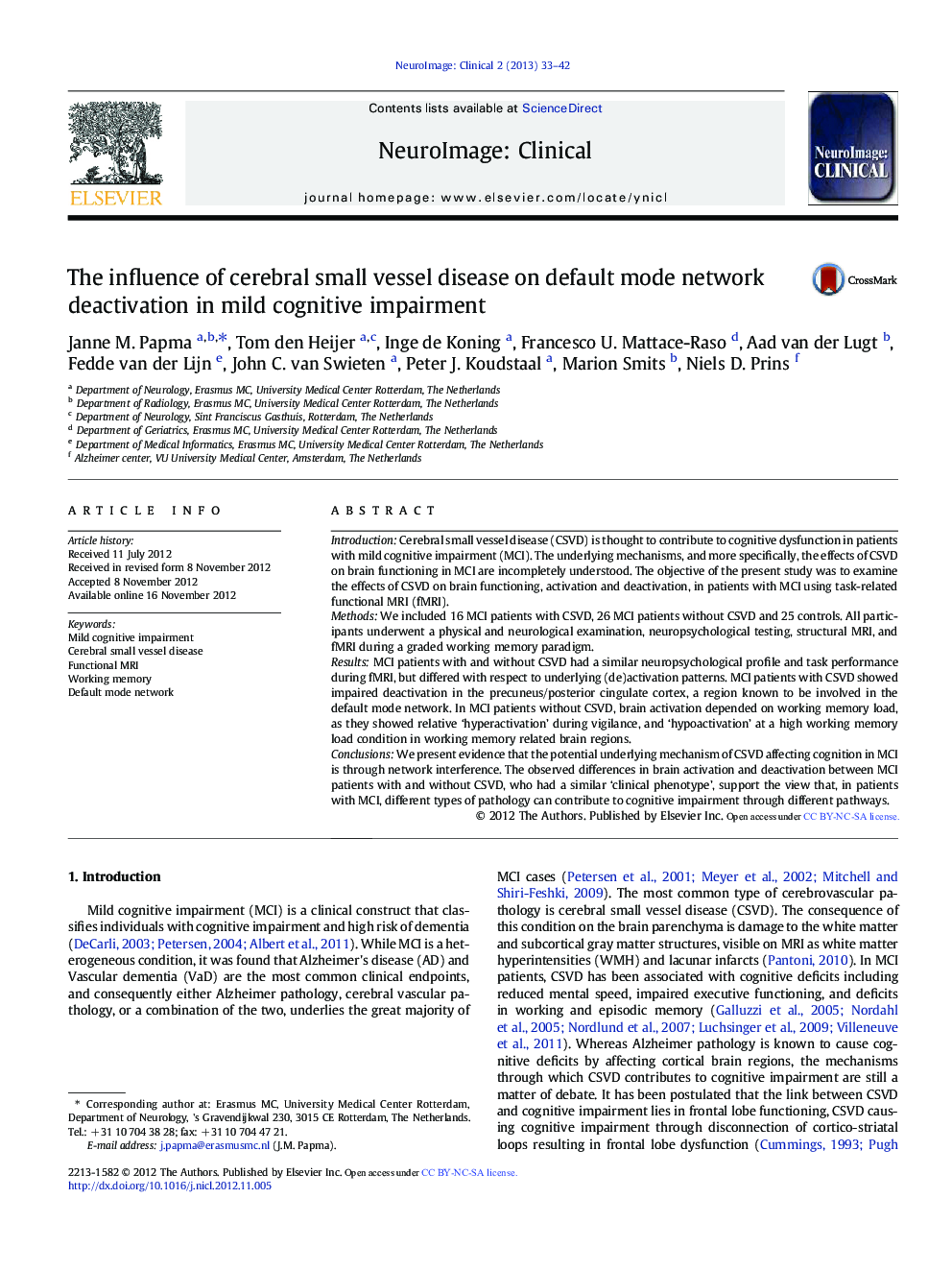| Article ID | Journal | Published Year | Pages | File Type |
|---|---|---|---|---|
| 3075486 | NeuroImage: Clinical | 2013 | 10 Pages |
IntroductionCerebral small vessel disease (CSVD) is thought to contribute to cognitive dysfunction in patients with mild cognitive impairment (MCI). The underlying mechanisms, and more specifically, the effects of CSVD on brain functioning in MCI are incompletely understood. The objective of the present study was to examine the effects of CSVD on brain functioning, activation and deactivation, in patients with MCI using task-related functional MRI (fMRI).MethodsWe included 16 MCI patients with CSVD, 26 MCI patients without CSVD and 25 controls. All participants underwent a physical and neurological examination, neuropsychological testing, structural MRI, and fMRI during a graded working memory paradigm.ResultsMCI patients with and without CSVD had a similar neuropsychological profile and task performance during fMRI, but differed with respect to underlying (de)activation patterns. MCI patients with CSVD showed impaired deactivation in the precuneus/posterior cingulate cortex, a region known to be involved in the default mode network. In MCI patients without CSVD, brain activation depended on working memory load, as they showed relative ‘hyperactivation’ during vigilance, and ‘hypoactivation’ at a high working memory load condition in working memory related brain regions.ConclusionsWe present evidence that the potential underlying mechanism of CSVD affecting cognition in MCI is through network interference. The observed differences in brain activation and deactivation between MCI patients with and without CSVD, who had a similar ‘clinical phenotype’, support the view that, in patients with MCI, different types of pathology can contribute to cognitive impairment through different pathways.
